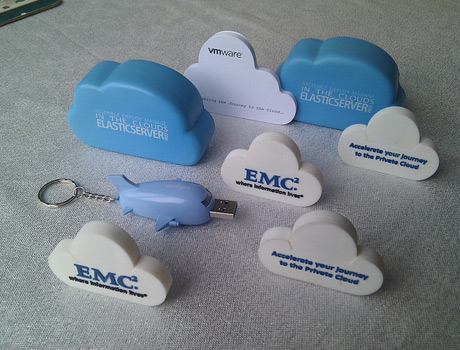When newer company Intranets started porting their information onto remote servers, we began a process of early cloud computing. The idea is that you should have access to all your important files regardless of the computer you are using. This is true for some company Intranets, but what about going home and working off your home network? Those network files are gone unless you can access the server(s) remotely.
Now we see the idea of lightning-fast cloud storage through multiple server farms. Architecture can be setup to run many connected HDDs from different machines – even different levels of RAID for data parity. Cloud storage infrastructure has been growing and trying to keep up with newer connection speeds. The industry has been slowed because of the poor economic conditions. Technology enthusiasts are still working hard to build layers upon layers of new software and hardware abstraction.
What does this mean for the typical end-user? Well I’d say that we are on a cusp of the next boom cycle for technology. I think we should expect a tremendous increase of remote data transfers within small and large corporations. One big problem has always been costs, and those are dropping rapidly over 2-3 year periods.
The other biggest problem has always been security and getting people comfortable with storing some data in the cloud. After years online you begin to realize privacy is important and this includes your private data. The cloud does have benefits when you need access to your files on different computers – or even when you need to handle automatic data backups. Modern software connections allow for dynamic transfers over the Internet, which means you can automatically backup data from your PC or even from a remote server.
Operating Systems have become normalized and the open source movement is creating less of a gap. Proprietary Mac backups and Windows backups are both equally useful in regards to any company or freelancer. Working by yourself provides a lot of freedom but doesn’t always offer the money you might wish to re-invest into the business. Think carefully before jumping into cloud storage.
Plan out exactly what you would need, how much storage space is enough, and what kind of information would be stored remotely. Would you need other users to have access to these servers? How much would it cost for multiple accounts or multiple logins for one account? These are some important questions that you might need to ask support staff members if you cannot find helpful answers on the provider’s website.
All-in-all I do think that cloud storage and cloud-based web hosting is a truly exciting feature. CDN networks are just one example of how this may speed up the Internet altogether. But remember, this technology is still growing and you want to gauge the markets to see price points and tactical uses within your own life. Try out a reputable cloud host if this may provide more flexibility and even save you time at work.
Originally posted on November 19, 2013 @ 10:45 am
